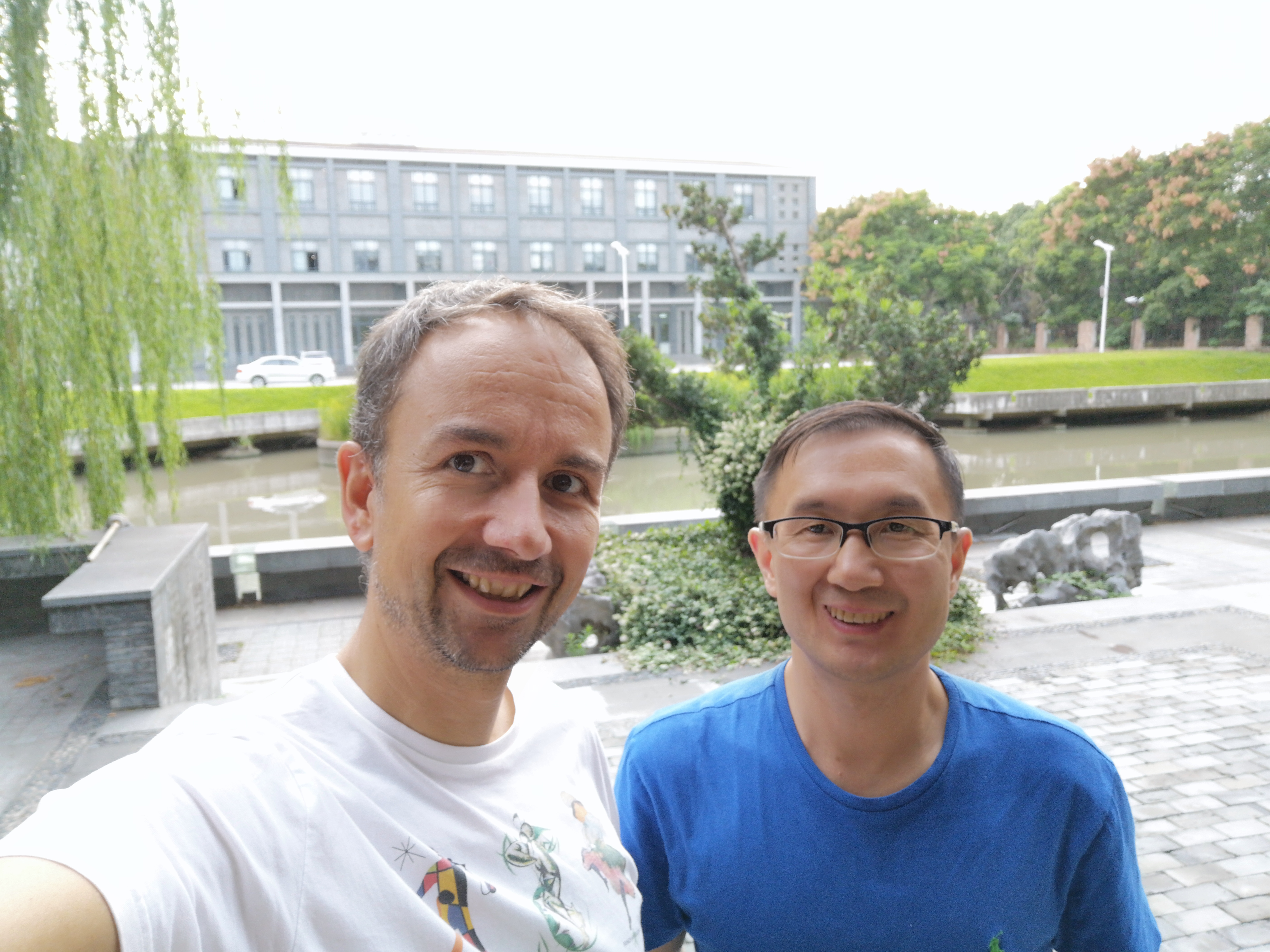
Title: The roles of WDR45 in autophagy in beta-propeller associated neurodegeneration and ageing
WDR45蛋白在自噬与b-螺旋桨蛋白相关的神经退行性变及衰老中的作用
Directors: Bertrand MOLLEREAU & Lujian LIAO
Discipline: Biology
Status: Incubating Project
Starting date: 2020
Directors
Summary
Autophagy is a pro-survival mechanism responsible for the degradation and recycling of cytoplasmic contents, including misfolded proteins and damaged organelles such as the mitochondria and the endoplasmic reticulum (ER) and nutrients such as metal-including iron-, lipids and amino-acids. Autophagy has important functions during development and diseases, and strong evidences indicates that autophagy also has a direct role in modulating ageing. It is believed that during normal aging, autophagy becomes less efficient leading to misfolded proteins accumulation, aggregates formation and neurodegeneration.
Under conditions of misfolded protein overload, an ER stress response is induced and leads to the activation of an adaptive dynamic signaling network known as the Unfolded Protein Response (UPR), which aims at restoring protein homeostasis (proteostasis). The UPR is coordinated by three ER transmembrane sensors ATF6 (activating transcription factor 6), IRE1 (Inositol-requiring enzyme 1) and PERK (PKR-like ER kinase), which activation results in the attenuation of global protein translation and the upregulation of protein folding capacity. By degrading misfolded proteins expelled from the ER and protein aggregates, the ubiquitin proteasome system (UPS) and autophagy are important regulators of proteostasis. In our laboratory, we have shown that following a non-lethal ER stress, autophagy is activated and act as neuroprotective mechanism in mouse and fly models of Parkinson disease and retinal degeneration. Autophagy also inhibits ER stress by ER-phagy, an autophagy selective pathway by which ER provides membranes that serve to form autophagosome and limit ER expansion.
In this proposal, we will study the role of autophagy and ER stress dysregulations in neurodegeneration and ageing in the beta-propeller associated neurodegeneration (BPAN). BPAN is caused by mutations in the autophagy gene WDR45, also known as WIPI4. In human, WDR45 mutations lead to static encephalopathy of childhood with neurodegeneration in adulthood (SENDA), which has been established as a subtype of neurodegeneration with brain iron accumulation (NBIA). BPAN is the most recently identified sub-type of NBIA and there is an urge to understand how WDR45 mutation provokes neurodegeneration. To that extent, the establishment of various and complementary cellular and animal models is essential. The goal of this proposal is to test the hypothesis that WDR45 specifically activates autophagy following ER stress to understand the neurodegenerative mechanisms of BPAN.
In this proposal, we propose to:
- Establish a novel genetic model of BPAN in Drosophila
- Identify the key signaling pathways in ER protein quality control during ageing in the context of normal and defective autophagy.








